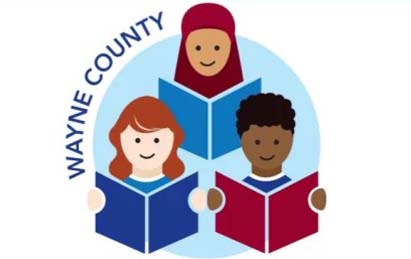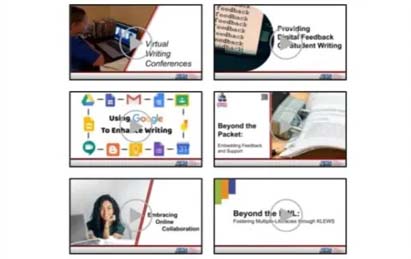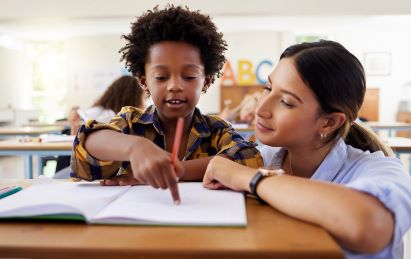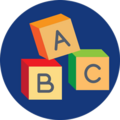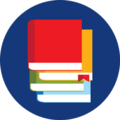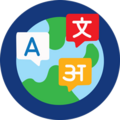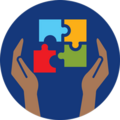Literacy
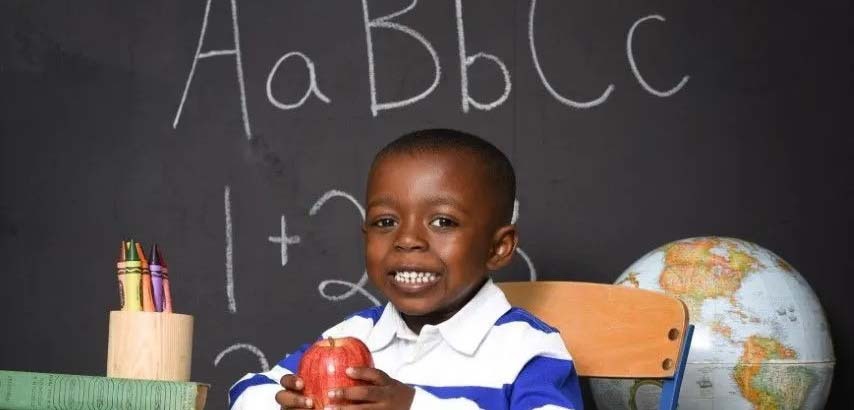
English Language Arts is an integrated approach to language and literacy instruction, which plays a critical role in learning and communicating. Wayne RESA ELA consultants are here to help schools best serve their students as they develop critical literacy skills. Please contact us for support in curriculum, instruction, assessment, and professional learning.
Wayne RESA Literacy Team Equity Statement
Professional Development
Assessment Information
Resource Highlights
Curriculum Resources
To access more comprehensive resources for curriculum adoption, review, or revision, visit our Wayne County Literacy Learning Network site.
Standards
The Michigan Standards for English Language Arts & Literacy in History/Social Studies, Science, and Technical Subjects (“the standards”) represent the next generation of K–12 standards designed to prepare all students for success in college, career, and life by the time they graduate from high school. This page is designed to support districts in implementing the Michigan K-12 Standards for ELA and more fully understanding the assessments that will be used to determine if the standards are being met.
Textbook Adoption
- Publishers' Criteria for Common Core State Standards in English Language Arts and Literacy, Grades 3-12
- Tri-State Quality Review Rubric for Lessons and Units
Curriculum Development & Support
- Literacy Implementation Guide from the International Reading Association
- Michigan Merit Course Requirements for High School
- Michigan’s Action Plan for Literacy Excellence
A sample set of curricular resources are available at Wayne RESA's Atlas Rubicon.
Dyslexia Legislation
MAISA GELN Instructional Practices
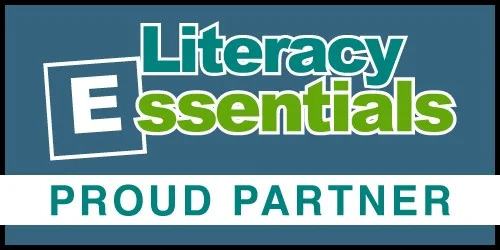
Expert research suggests that the 10 instructional practices outlined by MAISA GELN can have a positive impact on literacy development. The use of these practices in every Michigan classroom every day can make a measurable, positive difference in the state’s literacy achievement.
Reading Resources
Reading Comprehension
Close and Critical Reading
- Kurland's Critical Reading
- Shows you how to recognize what a text says, what a text does, and what a text means by analyzing choices of content, language, and structure. It shows you what to look for, and how to think about what you find.
- Teaching Critical Reading with Questioning Strategies
- This article presents three strategies students can use to develop questions about the texts they are reading in order to deepen engagement, critical thinking and analytical responses.
Nonfiction Resources
- NewsELA
- NewsELA automatically gives each student the version of an article that's just right for his or her reading ability. It adjusts the Lexile range of current news articles.
- Smithsonian Tween Tribune
Vocabulary
- 100 Words Every High School Student Should Know
- Learn words with Flashcards and other activities.
- The Princeton Review - Vocab Minute
- Podcasts of songs that help students remember challenging vocabulary.
Teaching for Equity
Educational Resources
- Annenberg Foundation Provides free educational resources for teachers. Annenberg Learners is a division on the Annenberg Foundation that funds and distributes educational video programs along with coordinated web and print materials to improve teaching methods and subject-matter expertise of K-12 teachers.
- The Arab World and Arab American The Arab world spans 21 countries and many ethnic groups, this link will provide a bibliography that includes picture books, folktales, poetry, fiction, and nonfiction in trade which represent the diversity of the Arab world.
- Asian-Pacific American Primary Resources for Teachers Put the power of primary sources to work in the classroom. Browse ready-to-use lesson plans, student activities, collection guides and research aids.
- Cooperative Children's Book Center The identity of the Cooperative Children's Book Center is grounded in literature for children and young adults. This is reflected in its collections, its role as a book examination center and research library, and its staff expertise in book arts, book evaluation, multicultural literature, alternative press publishing, and intellectual freedom.
- Culturally Responsive Teaching Culturally Responsive Teaching is a pedagogy that recognizes the importance of including students' cultural references in all aspects of learning (Ladson-Billings, 1994).
- Sharon G. Flake on Diversity and Young Adult Literature
- Gay Lesbian & Straight Education Network (GLSEN) Resources for inclusive LGBT curriculum alignment.
- Holocaust Memorial Museum for Educators Educators at the United States Holocaust Memorial Museum have developed ten guidelines to assist you in presenting this history ( and others) in a thought-provoking and responsible way. Content and methodology suggestions and cautions will help you make decisions about approach and emphasis.
- International Digital Children's Library The Foundation pursues its vision by building a digital library of outstanding children's books from around the world and supporting communities of children and adults in exploring and using this literature through innovative technology designed in close partnership with children for children.
- Social Justice Books: Arab and Arab American This resource provides synopses of books at all reading levels.
- Teaching Tolerance A place for educators to find thought-provoking news, conversation and support for those who care about diversity, equal opportunity and respect for difference in schools.
- Zinn Education Project Promotes and supports the teaching of people’s history in middle and high school classrooms across the country. The website offers free, downloadable lessons and articles organized by theme, time period, and reading level.
Award Winning Books
- American Library Association
- Lists developed by the units of ALA to highlight publications that emulate the "best of" a particular genre, targeted population group, or type of media.
- Coretta Scott King Book Award
- The Coretta Scott King Book Awards are given annually to outstanding African American authors and illustrators of books for children and young adults that demonstrate an appreciation of African American culture and universal human values.
- Pura Belpre Award
- The Pura Belpre Award Latino/Latina writer and illustrator whose work best portrays, affirms, and celebrates the Latino cultural experience in an outstanding work of literature for children and youth.
Selecting the Right Book
Third Grade Reading Law
In October 2016, The Michigan Legislature passed a critical law that will have tremendous implications upon current kindergarten students. Beginning with the 2019-2020 school year, third-graders could be retained if they demonstrate reading proficiency levels that are more than one level behind.
This early literacy bill requires districts and schools to assess the reading skills of all K-3 students at least three times per year in an effort to identify struggling students. Students experiencing deficiencies would be required to have an individual reading plan created in partnership with their teacher, the principal, and their parents. Parents will be provided with a “read at home” plan that would extend learning and strengthen reading skills, in addition to the interventions provided by the teacher and/or school’s literacy team.
Wayne RESA recognizes the impact that this law could have on local districts and their communities. In an effort to provide guidance to local districts and schools around the new early literacy law, Wayne County RESA has created a Third Grade Reading Workgroup consisting of curriculum directors, literacy specialists, and educational leaders from local districts throughout Wayne County. The purpose of this workgroup is to collaborate and identify possible resources needed to comply with the legislative requirements.
The workgroup is in the process of creating templates and forms that districts can utilize in order to communicate and document intervention activities. Sample parent toolkits are being developed to provide clarity around the law and guidance for “Good Cause Exemptions”. Parent resources will also provide strategies and activities to bridge and strengthen home-to-school learning connections.
Wayne RESA is delighted to collaborate with literacy leaders throughout the county to provide this resource.
Resources
Third Grade Reading Legislation Guidance
Enrolled House Bill Number 4822
House Bill Number 4822: Legislation Unpacked
Writing Resources
K-5 Resources
- Implementing Writer’s Workshop in Grades 4-6
- This site provides techniques for managing the components of writer’s workshop, including mini-lessons, time for writing, conferring and sharing.
6-12 Resources
- Writing Next
- This report offers teachers research-based strategies for teaching writing to 21st century adolescents.
- Write in the Middle
- This resource provides practical instructional advice to middle school level writing teachers.
- ReadWriteThink
- Sponsored by NCTE, this site includes hundreds of research-based classroom lessons along with professional development resources.
- Grammar and the SAT
- This Khan Academy resources addresses grammar areas assessed on the SAT.
Literacy Contacts
-
Zeinab Sleiman Assistant for Internal Operations - Educational Services (734) 334-1624 Send an Email


